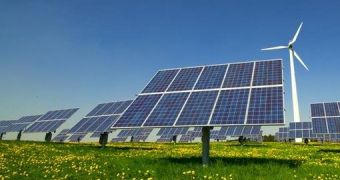The Isle of Eigg and Fair Isle in Scotland will soon be the first sites in Europe to have Formula One technology installed into their power networks.
Thus, Williams Advanced Engineering has recently announced plans to fit the power grids of said two islands with flywheel energy storage technology.
Business Green explains that, once installed, this technology is expected to help stabilize the power network of Isle of Eigg and Fair Isle.
Besides, specialists say that it will improve energy efficiency, and also help reduce greenhouse gas emissions linked to non-renewable power sources.
The same source details that, presently, Fair Isle uses a combination of wind turbines and diesel generators to have its power demand met.
The flywheel technology will work by smoothing the power coming from wind farms, and inject stored energy into the grid when needed.
Thus, the technology will not only improve on the quality of the power the island's residents receive, but will also reduce the region's reliance of diesel generators.
Consequently, greenhouse gas emissions will be reduced.
As far as the Isle of Eigg is concerned, it would appear that this patch of land currently relies on solar, hydro and wind power to have most of its energy demand met.
The renewable energy harvested from these sources is stored with the help of lead acid batteries that also serve to smooth the flow of power.
The flywheel technology is to take over this last task, and thus allow the batteries to take care of just one thing: storing energy. The switch will prolong the batteries' life, and also make the grid more reliable.
“This project is a very tangible example of how technology originally developed for Formula One racing can have a direct relevance to people's lives,” Paul Newsome, chief technical officer of Williams Advanced Engineering, commented on this project.
“Finding ways to make renewable energy more efficient and reliable is increasingly important, particularly in remote locations that rely on this form of power,” he added.

 14 DAY TRIAL //
14 DAY TRIAL //